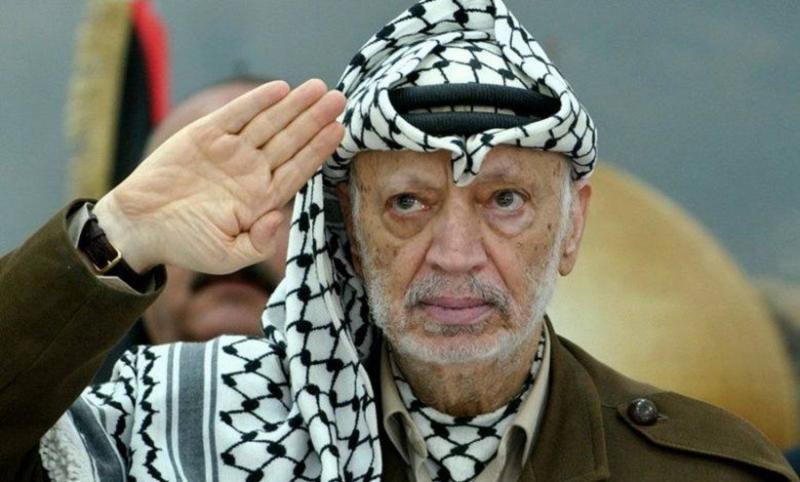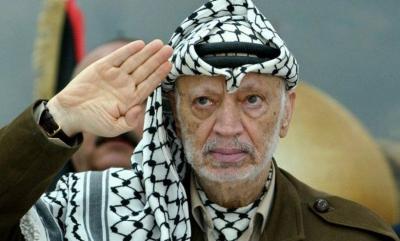Are we on the path to a new Palestinian catastrophe, one more severe than the previous one? Are we facing a new chapter in the long and bitter conflict, where Yahya al-Sinwar replaces Yasser Arafat, and "Hamas" takes the place of "Fatah"? Is "Hamas" betting on seizing the right to speak on behalf of the Palestinian people and imposing its color and choices on the Palestine Liberation Organization? Was the purpose of the "Al-Aqsa Flood" to turn the page on the "Oslo Accords" and the normalization process in Palestine and the Arab world? Many questions have arisen following "Hamas's" choice of al-Sinwar, who is entrenched in the tunnels of Gaza, as the head of its political bureau amidst anticipation of the "Iranian response" and "Hezbollah's reply."
Sometimes, a man makes a difficult decision that leaves lasting impacts on his people and the region. Al-Sinwar was six years old when the fedayeen, led by Yasser Arafat, made a decision that changed the course of Palestinian resistance and placed it on the region's priority list. This was in March 1968 when the Israeli government decided to punish the fighters who were launching attacks from Jordan. Israeli Defense Minister Moshe Dayan regarded the matter as a mere outing, especially after the defeat of Arab armies the previous year.
Jordanian intelligence received information that Israeli forces were preparing to carry out an incursion toward the village of al-Karama. Jordanian General Mashhour Haditha Jazzy conveyed this information to the leaders of the Palestinian organizations, including Yasser Arafat. It was highly unlikely that Palestinian groups could repel the incursion with their limited weaponry, and the logical decision under such circumstances would be for the Palestinian fighters to withdraw from al-Karama to avoid losses.
However, Arafat decided to swim against the current. He recognized, with his keen political sense, that the Palestinian revolution needed a baptism by fire to assert its legitimacy and regain the aura that had faded from the armies due to their defeat. He decided to keep the forces in al-Karama. On the morning of March 21, Israel launched paratrooper operations on the hills surrounding the town, and Dayan was close to achieving his dream had it not been for the precise and professional intervention of the Jordanian army artillery, which inflicted casualties on the attackers, prompting the Israeli side to request a ceasefire after 18 hours of fighting and withdraw to the previous lines.
I heard from Ahmed Jibril that he candidly told Arafat before the attack that al-Karama was "militarily lost" and not suitable for holding. Arafat refused to withdraw, resulting in about one hundred fatalities. The day after the Israeli withdrawal, Arafat repeated, "This is an epic... this is an epic." This statement came from Jibril.
The Battle of al-Karama ignited enthusiasm in the Arab street. Thousands volunteered in the "Fatah" movement, and aid poured in. Arafat made a costly decision, but he succeeded in creating a turning point in the Palestinian situation. The battle opened doors for him to Gamal Abdel Nasser’s office, who took him to the Soviet Union, and afterwards, Arafat’s keffiyeh became the most sought-after symbol in the region.
Initially, Arafat dreamed what al-Sinwar dreams of today, which is the "restoration of every inch of Palestine." However, after what "Abu Ammar" heard in Moscow, Cairo, and many capitals, and in light of long battles and numerous sacrifices, he concluded that the Palestinians must deal with reality and the balance of power, leading to the crystallization of the dream of a Palestinian state alongside Israel.
Has al-Sinwar found through the "Al-Aqsa Flood" an epic similar to the one Arafat found in the "Battle of al-Karama"? Was the "flood" a prisoner exchange project or a war project that returns the conflict to its roots and beginnings? In 2011, "Hamas" agreed to release the Israeli soldier Gilad Shalit, whom it had held for five years. The release came as part of a prisoner exchange deal in which Israel freed 1,027 Palestinian prisoners, among them a tenacious prisoner named Yahya al-Sinwar. The question that arises is why al-Sinwar did not plan to capture a handful of Israeli soldiers to compel Netanyahu’s government to release thousands of Palestinian prisoners? Holding one or more Israeli soldiers would not have given Netanyahu a chance to launch a devastating war and genocide.
Did al-Sinwar overlook that the course of the "flood" would certainly lead to war, or was he searching for a great earthquake regardless of its costs? Did he possibly expect that the earthquake would lead to a swift uprising in the West Bank that would topple what remains of the Palestinian Authority born from the ink of Oslo? Did he believe the earthquake would quickly escalate into a wide-ranging war on the Lebanese front that would necessitate Iranian intervention? Did the instigator of the "flood" expect that its course would expedite the launch of the "grand strike," meaning a barrage of missiles on Israel from multiple maps, including Iran? Was the "flood" intended as a long attritional war with the help of allies in the "Resistance Axis"? Is the concern over this attritional war what drives Netanyahu to invoke the specter of regional war to impose a ceasefire on all fronts after the destruction of Gaza, which is the Palestinian segment in the "Resistance Axis"?
The politician outshone the general in the figure of "Abu Ammar." It is evident that the general outshines the politician in the figure of al-Sinwar. Moreover, the "flood" came in a world different from that in which the "Battle of al-Karama" took place. American destroyers remain vigilant to counter any attack on Israel. Iran does not want a regional war. How will the Hamas general return from war given that a ceasefire may sometimes be harsher than gunfire?




